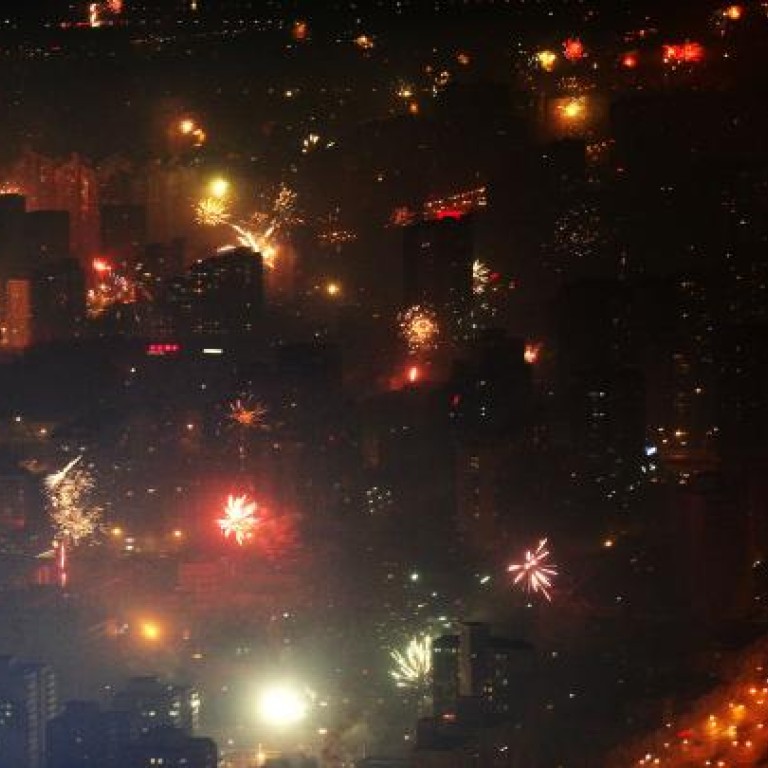
Revellers in face masks setting off fireworks sparks rethink of ritual
Sight of revellers in face masks firing off crackers prompts questioning of need for ancient tradition
The spectacle of Beijingers wearing face masks as they set off firecrackers in smog-choked streets at the start of the Lunar New Year led many to ask themselves a question: is the noisy custom appropriate, given the mainland's deteriorating air quality?
When reporters interviewed local residents in a neighbourhood in the capital's Fengtai district on February 9, they asked one reveller why he continued to set off fireworks when the smog was bad enough to warrant a mask.
He replied that the fireworks added to the festivities."I couldn't care less about air pollution," he said.
Another resident, in Xicheng district, told the paper it was"a turn-off" to talk about air quality during the holiday, as it was the only time of the year residents could have fun with fireworks.
"Our air quality hinges upon the activities in the rest of the year," she said.
That view, however, did not square with official data. The level of health-threatening PM2.5 particles - those less than 2.5 micrometres in diameter that can lodge deep inside people's lungs or their bloodstream - rose drastically in Beijing on Lunar New Year's Eve, from about 150 micrograms per cubic metre at 5pm to about 550 at 11pm. Anything above 300 is deemed "hazardous" by the mainland authorities, and overall air quality that day was ranked "heavily polluted".
Wuhan , capital of Hubei province , fared no better. Its PM2.5 level rose sevenfold, to 584, in the period between February 8 and 2am on February 10, according to Xinhua.
In a signed commentary on Tuesday, said the image of merrymakers in face masks setting off fireworks showed that while most citizens cared about air quality, few regarded it as their responsibility to help alleviate the problem.
"This has led to a vicious cycle in which everyone complains how bad the environment has become, but also points the finger at someone else," the paper said.
"That is why we hear those who litter the streets with plastic bags blame cars for pollution, while drivers blame refineries for poor-quality fuel."
The paper said that cultivating a civilised society was key to tackling pollution, as each person could make a difference by developing a greater sense of responsibility.
Beijing and much of northern and eastern China were hit by bouts of particularly bad smog last month, prompting pleas for people to set off fewer fireworks, or even none at all, while the quality of the air remained poor. There was even talk in some quarters of reinstating a national fireworks ban, which was introduced in 1992. (It was lifted in 2000 in some cities for special occasions, such as Lunar New Year.)
dismissed new year fireworks as an outdated rural ritual that had no place in a modern city.
"The smog might not necessarily be a direct result of fireworks, but it's definitely a result of human selfishness," the paper said.
"It's time to do some hard thinking about this ritual, because preferring festivity over health is stupid."
Citing official figures, reported on Friday that sales of fireworks in the capital dropped 45 per cent compared with last year, to 313,000 boxes in the five-day period to Thursday.
Meanwhile, only 165 fireworks-related injuries were reported in the period, a decline of 22 per cent year on year.
Several cities including Guangzhou, Zhengzhou and Dalian cancelled Lunar New Year fireworks displays, largely due to air pollution concerns.
But the argued that even if fireworks were not used during Lunar New Year celebrations, the country could only hope for a few days of clean air, as once the holidays were over factories and construction sites would quickly start churning out pollutants again.
